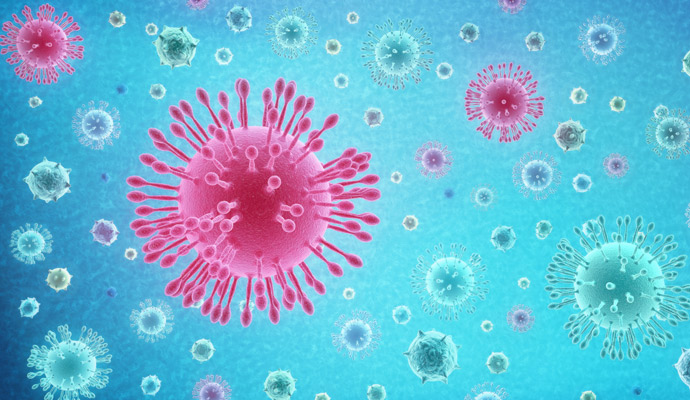GSK, Medicago, to Develop Novel Adjuvanted COVID-19 Vaccine
The collaboration will combine plant-based and adjuvant technologies to develop a COVID-19 candidate vaccine, with Phase 1 clinical testing scheduled to being mid-July.

Source: Getty Images
- GSK and Medicago recently announced a collaboration to develop and evaluate a COVID-19 candidate vaccine combining Medicago’s recombinant Coronavirus Virus-Like Particles (CoVLP) with GSK’s pandemic adjuvant system.
For more coronavirus updates, visit our resource page, updated twice daily by Xtelligent Healthcare Media.
CoVLPs mimic the structure of the virus responsible for COVID-19 disease. This allows them to be recognized by the immune system response and reduce the amount of antigen required per dose.
Vaccine doses are then scaled-up, which ensures more individuals are protected.
“Use of an adjuvant can be of particular importance in a pandemic situation as it may boost the immune response and reduce the amount of antigen required per dose, allowing more vaccine doses to be produced and therefore contributing to protect more people,” GSK officials said in the announcement.
The companies will leverage Medicago’s plant-based production platform to manufacture the COVID-19 vaccine antigen. Medicago uses leaves of a plant as bioreactors to produce the S-spike protein, which self-assemble into VLPs for use in the CoVLP vaccine candidate.
According to the release, the platform is scalable and supports the production of large amounts of vaccine in a shortened timeline.
The companies expect to be able to manufacture approximately 100m doses by the end of 2021. And by the end of 2023, a large-scale facility under construction in Canada is expected to deliver up to 1 billion doses annually.
Pre-clinical results with Medicago’s CoVLP vaccine candidate showed a high level of neutralizing antibodies following a single dose when administered with adjuvant.
Phase 1 clinical testing is planned to start in mid-July and will evaluate the safety and immunogenicity of three different dose levels of antigen combined with GSKs pandemic adjuvant. It’ll also test the antigen against an adjuvant from another company, administered on a one- and two-dose vaccination schedule, given 21 days apart.
GSK has been one of the most active companies during the COVID-19 pandemic. First, in April, GSK and Vir Biotechnology announced a collaboration to enhance COVID-19 drug discovery through the use of CRISPR and artificial intelligence.
The partnership will initially focus on accelerating the development of specific antibody candidates using Vir’s monoclonal antibody platform technology and GSK’s expertise in functional genomics.
The companies will also use CRISPR screening and AI to uncover anti-coronavirus compounds that target cell host genes.
The CRISPR screening and machine learning approach will identify targets that may prevent viral infection. Vir has identified various potential treatments against flu and other respiratory pathogens, as well as hepatitis B virus. The biotechnology company will now turn its focus to SARS-CoV-2.
Then in May, GSK and Sanofi signed a letter of intent to develop an adjuvanted COVID-19 vaccine.
Sanofi and GSK expect to initiate Phase I clinical trials in the second half of 2020. If the trials show success, the companies plan to complete the development required for availability by the second half of 2021.
Most recently, GSK announced it will manufacture one billion doses of its pandemic vaccine adjuvant system, in 2021 to support the development of various adjuvanted COVID-19 vaccine candidates.
The technology system can decrease the amount of vaccine protein required per dose. This allows more vaccine doses to be produced for more individuals.
“We believe that our innovative pandemic adjuvant technology has the potential to help improve the efficacy and scale up of multiple COVID-19 vaccines,” Roger Connor, president of GSK Global Vaccines said in the announcement.
“With this significant expansion in our manufacturing capacity, we can help deliver up to 1 billion doses of adjuvanted vaccines through 2021, helping protect many more people and support the global effort to fight COVID-19.”
